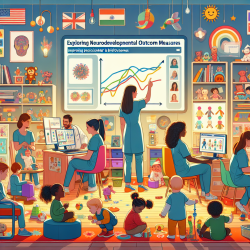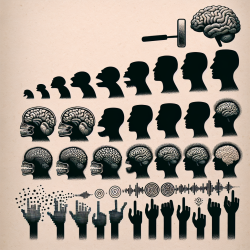As a practitioner dedicated to improving the lives of children, it's essential to stay informed about the latest research and incorporate findings into your practice. A recent study titled Exploring neurodevelopmental outcome measures used in children with cerebral malaria: the perspectives of caregivers and health workers in Malawi provides valuable insights into neurodevelopmental outcomes that can guide your approach.
The study emphasizes the importance of considering a holistic approach when assessing children with cerebral malaria (CM). Traditional outcome measures have often focused on specific impairments, but this research highlights the need to incorporate broader aspects such as the International Classification of Functioning, Disability, and Health (ICF) framework.
Here are key takeaways from the study that can enhance your practice:
- Holistic Assessment: Beyond physical impairments, consider cognitive function, learning abilities, self-care, and social participation. The ICF framework provides a comprehensive approach that includes body function, activity, participation, and environmental factors.
- Family and Social Context: Understand the social and emotional implications of CM on the family. Issues like stigma, discrimination, and financial pressures significantly impact the care and integration of children with neurodisabilities.
- Customized Interventions: Tailor interventions to address not only medical needs but also social and emotional support. Engage with caregivers to understand their perspectives and involve them in the treatment process.
- Cross-Cultural Sensitivity: Be mindful of cultural differences and how they influence perceptions of disability and care. Effective communication and culturally appropriate interventions are crucial for successful outcomes.
Implementing these findings can lead to more effective and comprehensive care for children with CM and other neurodevelopmental disorders. By incorporating a holistic, family-centered approach, practitioners can significantly improve the quality of life for these children and their families.
For those interested in delving deeper into this topic, further research and continuous education are encouraged. The full study provides extensive insights and can be accessed here: Exploring neurodevelopmental outcome measures used in children with cerebral malaria: the perspectives of caregivers and health workers in Malawi.
To read the original research paper, please follow this link: Exploring neurodevelopmental outcome measures used in children with cerebral malaria: the perspectives of caregivers and health workers in Malawi.










